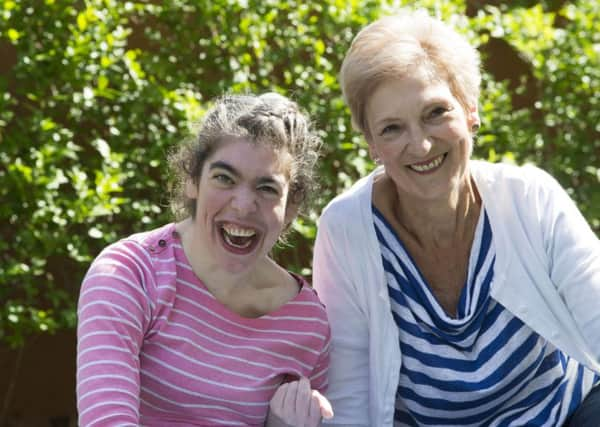New lease of life for woman living with epilepsy


Rachel Ferguson, 33, from Craiglockhart, was admitted to the William Quarrier Scottish Epilepsy Centre after her health and quality of life plummeted following significant life changes.
She was first diagnosed with epilepsy at the age of two and at 16-years-old she was hit with a debilitating virus that rendered her unable to sit up or swallow.
Advertisement
Hide AdAdvertisement
Hide AdOver time she began to recover and managed to live independently, enjoying a full and active life for more than a decade. But after she moved to a new flat and had a fall that knocked out her tooth, Rachel’s condition began to deteriorate.
Her parents, beside themselves with worry, noticed changes in her posture, an increase in drooling and persistent eye rolling. Doctors put her on new medication, but her mobility became even more limited.
Mother Eleanor said: “She had previously been able to walk for one-and-a-half miles, but could only walk a couple of yards. She drooled and bent over when she moved and developed a tremor in her arms, which meant she had difficulty feeding herself.”
Doctors told Rachel’s parents her brain hadn’t had the resilience to cope with the recent changes and was effectively behaving like an older person.
Advertisement
Hide AdAdvertisement
Hide AdEleanor said: “The epilepsy nurse told us people with learning difficulties often react badly to moving and combined with illness and a fall, it was decided to put her on a new drug.
“But things seemed to get worse. Her eyes would roll up for hours. Her quality of life was completely gone and she was really not getting anything out of life. She really went downhill and I was starting to worry that she had a tumour.”
Her parents refused to accept this was the way Rachel would be for the rest of her life. The turning point in Rachel’s health followed a grant for funding to go to a specialist epilepsy centre in Glasgow.
Admitted to the centre for two weeks, Rachel, Eleanor said, is now a different person.
Advertisement
Hide AdAdvertisement
Hide Ad“Even before her condition worsened, we could only walk about a mile with her, but now she’s walking at least two-and-a-half miles supported and enjoys swimming and trampolining,” Eleanor said. “She is saying new words and is a lot brighter and more engaged. Her whole demeanour has changed.” The team at the epilepsy centre significantly reduced the dose of some of the drugs Rachel was taking and introduced a new medication, as well as closely monitoring her seizure activity. Dr Maria Oto, consultant neuropsychiatrist at the centre, said: “Many people who are admitted to the William Quarrier Scottish Epilepsy Centre have been taking prescribed medication for many years, which may not be effectively treating their seizures. We can support patients to reduce or even withdraw from medication in a safe environment where their seizure activity is closely monitored.”
Eleanor added: “The improvement in Rachel’s condition was miraculous. Above all, she is able to enjoy her life again and I want to spread the word about what a great place Quarriers is.”
